Eating Disorder
Does your world revolve around food?
Unhealthy eating patterns can interfere with an individual’s life leading to unhappiness and anxiety. When food dominates an eating disorder can develop. Individuals may find their thoughts and behaviours revolve around: how to avoid food, especially food they fear will result in weight gain, being preoccupied with how to control all food choices, the anticipation of obtaining large amounts of food, restricting food intake, binging and purging, overeating/comfort eating, excessive exercise or laxative use, fear of weight gain, body image dissatisfaction and low self-esteem, isolation from friends and family. These experiences can be distressing and result in feeling out of control. Feeling out of control can then lead to more extreme attempts to control food as a way of feeling better about oneself and life in general. Unhealthy eating patterns and eating disorders often serve as coping mechanisms for deeper feelings of unhappiness and distress.
Three major types of eating disorders in adolescents and adults are: Anorexia Nervosa, Bulimia Nervosa, and Binge-Eating Disorder (Diagnostic and Statistical Manual of Mental Disorders 5th ed, 2013).
People with Anorexia Nervosa (AN) have dangerously low body weight and refuse to maintain body weight at or above a minimally normal weight for their age and height, experience intense fear of gaining weight or becoming fat even though they are underweight. They are preoccupied with body weight and shape, which dominates their self-evaluation. They sometimes experience disturbances in the way their body weight and shape is viewed but not always. If Anorexia is not treated, it may result in severe malnutrition and death.
Bulimia Nervosa (BN) is also a very serious condition whereby individual’s experience episodes of consuming large qualities of food which is followed by compensatory behaviour which is intended to overcome the fear of weight gain from binging. Similar to Anorexia Nervosa, individuals often experience intense fear of gaining weight or becoming fat, being preoccupied with body weight and shape, which dominates their self-evaluation. They may view their body weight or shape as larger than it actually is. In addition to episodes of eating a lot of food individuals often avoid eating or diet in the period leading up to a binge. Bulimia Nervosa can also result in serious medical complications.
Binge Eating Disorder involves consuming a large quality of food. This may occur in a discrete episode, for example, one night or may be spread over a much larger length of time such as a whole weekend. Individuals often feel out of control, shame and guilt about over eating. Like with AN and BN there can be a pre-occupation with food and dissatisfaction with body weight and shape. Weight gain, obesity and other medical complications are common.
Moderate to high levels of anxiety and depression are commonly experienced by people struggling with unhealthy eating patterns and eating disorders. There can also be past experiences of physical, sexual and /or emotional trauma.
Counselling plays a crucial role in helping individuals with unhealthy eating patterns and eating disorders. This begins by understanding the stages of change. The first step or stage is to recognise there is a problem. From here counselling focuses on developing of an alternative understanding of one’s own feelings and self-perceptions, as well as other ways of coping with others and the world in general. Counselling may also address the impacts of past trauma if this is present. Therefore, counselling addresses the whole person not just managing a relationship with food.
Specific therapeutic approaches used include:
- Cognitive Behavioural Therapy – restructuring negative thoughts and behaviours
- Interpersonal Therapy
- Ego State Therapy
- Trauma Therapy (if relevant)
